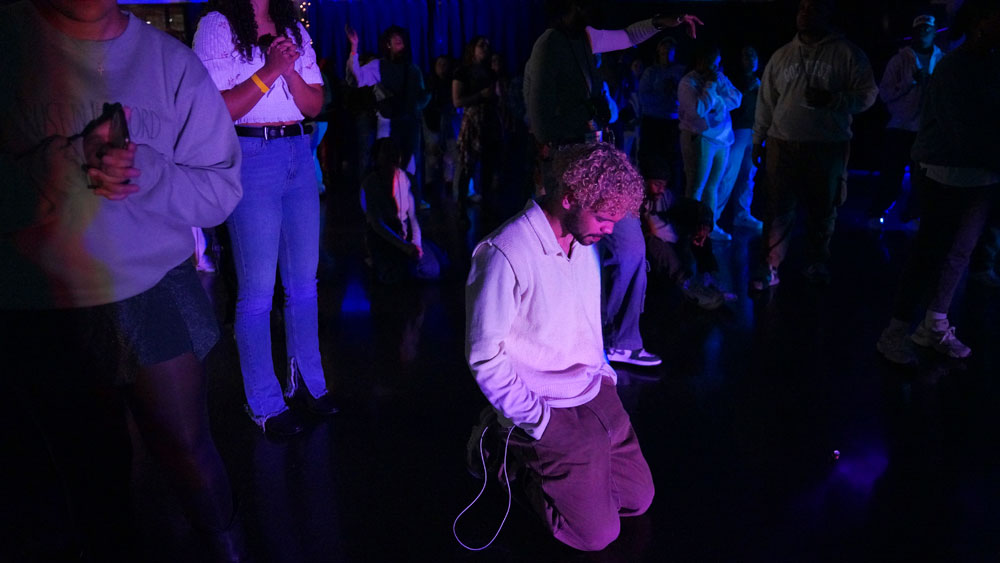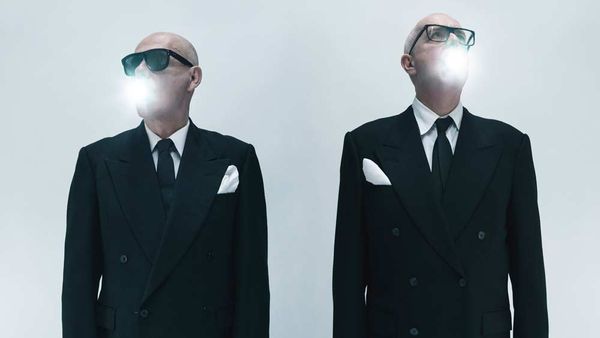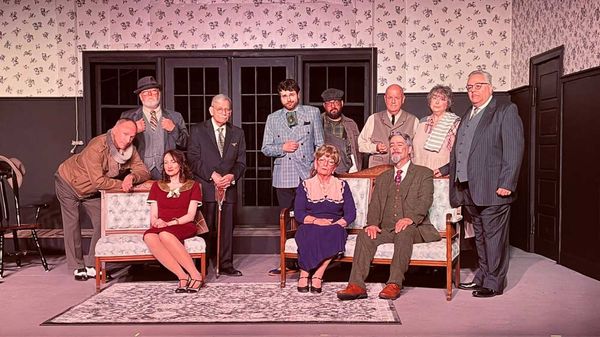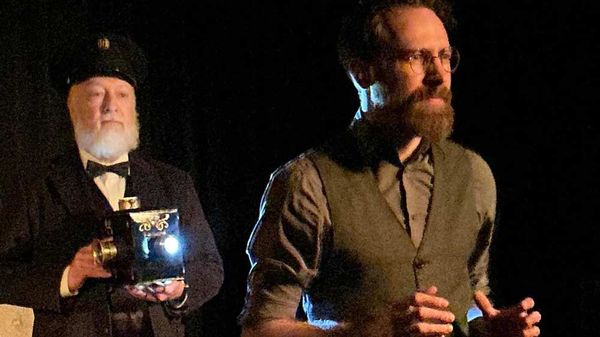
July 13, 2018
Don't Worry, He Won't Get Far on Foot
Kilian Melloy READ TIME: 4 MIN.
Gus Van Sant assembles a top-flight cast for the intimate, technically inventive, and frustratingly recursive biopic "Don't Worry, He Won't Get Far on Foot," which is based on the memoir of the cartoonist John Callahan.
Callahan (played by Joaquin Phoenix) was a quadriplegic who turned to cartooning after an automobile accident left him in a wheelchair with limited use of his hands. His mordant humor offended some people - imagine Charles Addams or Edward Gorey suffering the DTs while in the midst of a bout of existential angst - but they possess a scintillating obsidian wit. Callahan's style is, by necessity, unusual, but also striking. His work is a persuasive argument for art over craft, an argument that Van Sant - who also wrote the screenplay - addresses, concisely and with deceptive casualness, in one of the film's brief peripheral scenes.
The film is loaded with such scenes - glimpses at the complexities of a life that, far from withering when Callahan became paralyzed at the age of 21, seems to have sprouted in every direction. Aside from a fleeting mention, Van Sant doesn't even have time to address the fact that Callahan was a songwriter as well as a cartoonist. But things circle back, time and again, to his defining pain, the hole in his life that we're given to believe is the wellspring of Callahan's misfortunes: His birth mother, who was Irish Catholic, gave him up shortly after his birth, evidently because she had him out of wedlock. She placed him in the care of nuns who, after a six-month waiting period, put him up for adoption. Mother never came back for him in that half-year grace period.
The film swirls around and around Callahan's abandonment issues until one starts to worry that it's going nowhere, and might even be circling the drain. But Phoenix plays the part with such depth and intensity that the story manages not to disappear down the plug; the fine supporting cast - including a transformed Jonah Hill as Callahan's AA sponsor, Donnie, a gay man uninterested in cheap emotional dramatics; Rooney Mara as a hospital volunteer and, later on, girlfriend named Annu; and Tommy Greenhand as Callahan's not always reliable attendant, Tim - do their part, also, to loft the film up and away from the threat of deadening narrative dampness. As Reba (Beth Ditto), another of Donnie's sponsees, has it, "Poor me" has a way of turning into "Pour me another."
These emotionally bracing narrative counterweights enables Van Sant and Phoenix to lever Callahan, bit by bit, to a place of fulfillment, if not exactly redemption, even though the film does work a little too hard to put a happy gloss on his progress. It's a delicate balance that Van Sant doesn't always manage. Confusingly, at one moment - an emotional breakthrough of sorts for Callahan - we're told that gaining clarity and perspective around one's own damage isn't a magically healing achievement. Not long after, however, when Callahan meets the man who was driving his car when the accident occurred - a bon vivant named Dexter (Jack Black, who again proves his dramatic chops) - the two men go through a mutual emotional kaleidoscope that folds shock, guilt, and forgiveness into a nicely giftwrapped exchange that takes place within the span of a Billy Joel song. (More effective by far is the score by Danny Elfman, an atmospheric suite of work that sounds nothing like the typical Elfman project.)
In other ways, however, the movie pulls off the improbable feat of sidestepping confusion even as it cross-cuts and flashes back in ways that draw provocative parallels. Callahan, speaking to an audience at what seems to be a fairly high-profile occasion, directly compared to Callhan, at an earlier point in his life, addressing attendees at an AA meeting. His patter is the same; the applause from one event bleeds over into the other; the two moments link magnetically and illuminate each other, despite their disparate locations in time and Callahan's emotional arc. There are many references by Donnie to the "higher power" that twelve-step programs hold to be necessary for any addict, to any substance or behavior, to surrender to in order to make progress. Van Sant seems to be suggesting with the very structure of this film that the highest power of all, when it comes to making sense out of life's messy narrative, is a good editor. (Van Sant, of course, has his fingerprints all over the editing scheme; joining him in the cutting room is David Marks.)
This is Van Sant's project, and his fans will rejoice, but it's Phoenix who's the star. The black hold of abandonment and its draining emotional toll might serve as a de facto anchor for the story, but Phoenix stands at the heart of the film's gossamer, gradually cumulative affect. Lost, sarcastic, sometimes whiny and sometimes bleak, recklessly darting into traffic whether on foot or in a zipping wheelchair - in short, living full out - his Callahan is hardly a hero, not even a picaresque one, but he is lumpily, likeably genuine.
Kilian Melloy serves as EDGE Media Network's Associate Arts Editor and Staff Contributor. His professional memberships include the National Lesbian & Gay Journalists Association, the Boston Online Film Critics Association, The Gay and Lesbian Entertainment Critics Association, and the Boston Theater Critics Association's Elliot Norton Awards Committee.







